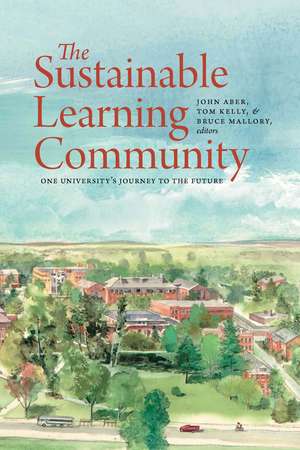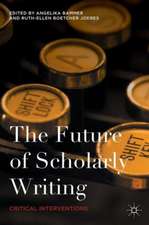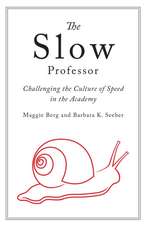The Sustainable Learning Community: One University’s Journey to the Future: UNH Non-Series Title
Editat de John Aber, Tom Kelly, Bruce Malloryen Limba Engleză Paperback – 31 mai 2009
University communities have the potential to serve as models in the development and application of sustainability principles and practices, not only by what they teach and study, but also by how they operate facilities and engage with off-campus partners. With the oldest endowed campus-wide sustainability program in the country, established in 1997, the University of New Hampshire has become a leader in advancing a campus culture of sustainability. The UNH experience provides a unique window into the development of a new and integrated approach to teaching, learning, research, and operations. It is also a valuable guide for other institutions that aim to enhance the quality of campus life while reducing their environmental footprint. The book's organization along four functional domains (curriculum, operations, research, and engagement) allows faculty, staff, students, and managers to focus on sections of particular relevance to their university roles. Each chapter develops standards of best practices and presents interesting case studies to humanize the larger effort.
Preț: 239.28 lei
Nou
Puncte Express: 359
Preț estimativ în valută:
45.80€ • 49.77$ • 38.50£
45.80€ • 49.77$ • 38.50£
Carte tipărită la comandă
Livrare economică 21 aprilie-05 mai
Preluare comenzi: 021 569.72.76
Specificații
ISBN-13: 9781584657712
ISBN-10: 1584657715
Pagini: 288
Dimensiuni: 152 x 229 x 20 mm
Greutate: 0.43 kg
Ediția:First Edition
Editura: University of New Hampshire Press
Colecția University of New Hampshire Press
Seria UNH Non-Series Title
ISBN-10: 1584657715
Pagini: 288
Dimensiuni: 152 x 229 x 20 mm
Greutate: 0.43 kg
Ediția:First Edition
Editura: University of New Hampshire Press
Colecția University of New Hampshire Press
Seria UNH Non-Series Title
Recenzii
"This book provides excellent examples of the type of cross-campus dialogue needed to develop sustainability curricula, innovative course outlines for introductory or capstone courses in global environmental issues, approaches for university provosts, vice-presidents for research, sustainability officers, and university presidents to follow in evaluating their university strengths, combining them with external funding, and generating academic excellence as leaders in campus sustainability programs."—Ecology
"In higher education we realize that our students will live out their personal and professional lives in circumstances enormously different from those that shaped our own studies and perceptions. One important response to this has been the effort to bring 'sustainable development' into the teaching, research, public service, and management of American universities. But the effort is recent; it gets diverted and confused by uncertainty about what kind of development is desirable and for whom. And, of course, it raises issues of intellectual sovereignty within the faculty. This book tells you why education for sustainability is important, and it offers an inspirationally diverse set of case studies that illustrate what can be done. Read here to learn how sustainability can be converted from an abstract theoretical idea into a large number of efforts that are changing teaching, research, public service, and management at a real university."—Dennis Meadows, co-author of the 1972 report, The Limits to Growth and Professor Emeritus of Systems Policy and President of the Laboratory for Interactive Learning
"In higher education we realize that our students will live out their personal and professional lives in circumstances enormously different from those that shaped our own studies and perceptions. One important response to this has been the effort to bring 'sustainable development' into the teaching, research, public service, and management of American universities. But the effort is recent; it gets diverted and confused by uncertainty about what kind of development is desirable and for whom. And, of course, it raises issues of intellectual sovereignty within the faculty. This book tells you why education for sustainability is important, and it offers an inspirationally diverse set of case studies that illustrate what can be done. Read here to learn how sustainability can be converted from an abstract theoretical idea into a large number of efforts that are changing teaching, research, public service, and management at a real university."—Dennis Meadows, co-author of the 1972 report, The Limits to Growth and Professor Emeritus of Systems Policy and President of the Laboratory for Interactive Learning
Notă biografică
JOHN ABER is Professor of Environmental Science and former Vice President for Research, University of New Hampshire. TOM KELLY is Chief Sustainability Officer and Director, Office of Sustainability Programs.
BRUCE MALLORY is Provost and Executive Vice President.
BRUCE MALLORY is Provost and Executive Vice President.









